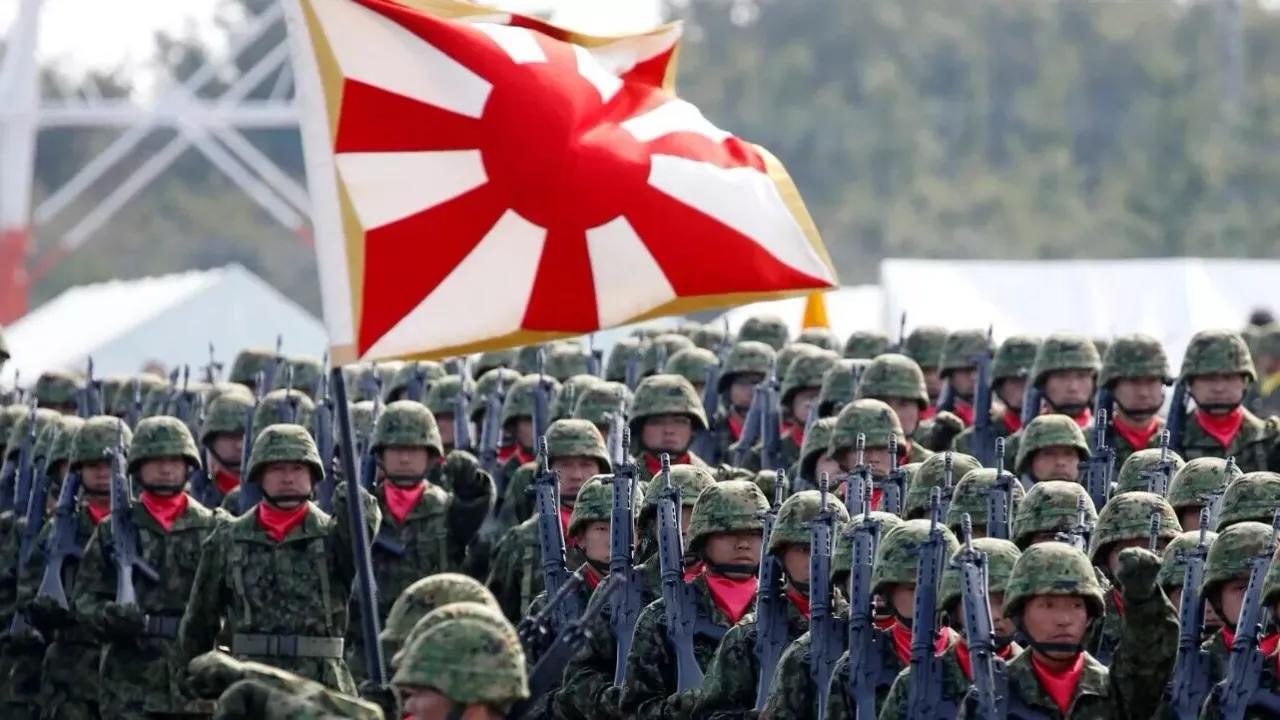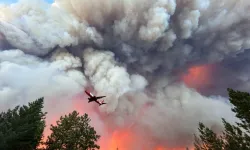A public visitation day was recently held in Tokyo, the capital of Japan.
But despite a packed program, from family visitors to playgrounds and snacks, not many people stopped by the Self-Defense Forces (GSDF) recruitment booth.
One of the two soldiers on duty at the site, pointing to brochures on a table next to a green armored vehicle, said, "This is the truth... The festival is always packed, but no one comes (to our booth)," he sighed.
Japan's government has decided to dramatically increase defense spending over the next five years, alarmed by China's growing military power and North Korea's missile tests.
But a report by a panel of experts in July found that the risk of the armed forces being weakened by personnel shortages was "extremely high".
Although figures vary from year to year, since 1990 the strength of the Self-Defense Forces (Japan's military) has fallen by over 7 percent to less than 230,000.
Last year (2022), enlistment remained below 4,000, not even reaching half of the target. Japan last reached its recruitment target in 2013.
"I was ashamed to say I was a soldier"
Many developed economies are having trouble recruiting enough people. This is especially the case in Japan, where 1 in 10 people are aged 80 and over.
But demographics are not the only culprit, according to current and former soldiers.
"I was ashamed to say I was in the Self-Defense Forces, it didn't make me proud," said Yuichi Kimura, a 45-year-old former paratrooper who now runs a firm that helps ex-servicemen get civilian jobs.
He says morale is "low" because of "low pay" and a "lack of ambition" in the armed forces, whose role since World War II has been purely defensive in line with Japan's "pacifist" constitution.
Many people in the country join the military to help the public during natural disasters, but find themselves performing military duties.
According to soldiers who have left the army, this leaves them "terrified".
"Most of the soldiers never thought about national defense (when they joined the army)," says Kohei Kondo, 25, a former sergeant.
The Defense Ministry insists on recruiting only suitable candidates. But according to media reports, standards, including psychological tests, have now dropped considerably.
In one incident in June, two men were killed at a training ground by a newly recruited soldier.
Kimura, a former paratrooper, said Japan was "recruiting almost everyone because no one expected a real armed conflict."
Allegations of sexual harassment against female soldiers
Japan raised the age limit for new recruits from 26 to 32 in 2018 in an attempt to stem the decline in interest in joining the military.
Another solution, according to the July report, is to use more unmanned vehicles in the air, sea and land.
The GSDF is reportedly even considering allowing tattooed soldiers, traditionally associated with the yakuza.
Japan also aims to increase the proportion of female soldiers from the current 9 percent to 13 percent by 2030.
The Defense Ministry website, which features photos of smiling female soldiers, promises a "female-adapted environment."
But according to Fumika Sato, a professor of military sociology and gender sociology at Hitotsubashi University, there is a significant gap between the "reality on the ground" and what matters.
Sato claims that the GSDF is "an environment conducive to harassment and sexual violence".
Over the last year, the army has been rocked by revelations of sexual assaults within its ranks.
It began when former female soldier Rina Gonoi went public with allegations of sexual harassment that received national and international media attention.
Gonoi, a self-described "female ex-soldier waging war on sexual abuse", had waged a war against the institution because of the sexual abuse she was subjected to by other soldiers.
Her painful experience paved the way for dozens of other women to come forward and speak publicly about their experiences.
Although there is no concrete evidence of a direct link between the revelations of sexual harassment and the number of female soldiers, the number of female soldiers has fallen by 12 percent since March 2023.
"There were incidents in my company that could have the same effects," said Kodai Suzuki, 27, another former soldier.
"What kind of parents would allow their daughter to join such an organization?" asked a non-commissioned officer who requested anonymity.
Japan Self-Defense Forces
Article 9 of Japan's 1947 Constitution, drafted under US occupation after the Second World War, stated that the country would essentially become a pacifist nation and would never again establish "land, naval or air forces".
According to Article 9 of its Constitution, the country would also
Japan, which has increased its defense budget, is struggling to find soldiers to join the army!
A public visitation day was recently organized in Tokyo, the capital of Japan. Japan, which has increased its defense budget, is struggling to find soldiers to join the army.
Editor: David Goodman
Trending news

Snoop Dogg to carry the Olympic torch

Lily James Expresses Admiration for Hailey Bieber’s Rhode Skincare Line

Taylor Tomlinson Will Explore Her Faith and Sexuality on Tour!

'Alien mummy' in Peru raises eyebrows

Scandal in the heart of Europe: Child abuse in a church!

Kamala Harris’ Running Mate: Here’s Who Could Be Her VP After Biden Drops Out And Endorses Her






